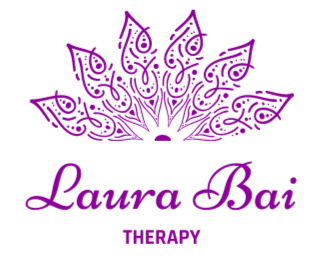
Disconnection & Dissociation Therapy
In Oakland, CA
Trauma-Informed Therapy for Asian-American Adults
If you're struggling with feeling disconnected from yourself, your emotions, or your relationships, you're not alone. As a mental health professional specializing in trauma-informed care for the Asian-American community in Oakland and more broadly throughout California, I understand how disconnection and dissociation can create invisible barriers that separate you from living authentically. I help individuals, couples, and families heal from trauma-related dissociation while honoring the complexities of navigating multiple cultural worlds and the unique pressures experienced by 1.5 and second-generation Asian-Americans.
Understanding Disconnection and Dissociation
Dissociation is a mental process that allows you to psychologically step away from overwhelming experiences when they become too much to bear. This coping mechanism enables you to disconnect from thoughts, feelings, memories, or even your sense of identity during traumatic events or periods of extreme stress. While dissociation can serve as protection during difficult times, it often persists long after the original threat has passed, creating challenges for your mental health, relationships, and overall well-being.
For many Asian-American adults, dissociative symptoms often develop as responses to complex layers of intergenerational trauma. This might include:
The exhausting work of code-switching between home and outside environments
Carrying the weight of family sacrifices and immigration stories
Managing the pressure to be the family's path to the American dream
Feeling caught between honoring your parents' values and finding your own voice
Experiencing the isolation that comes with being misunderstood in both cultural spaces
Processing family trauma that spans generations but was never openly discussed
These experiences can create profound disconnection—not just from painful memories, but from your authentic self, your heritage, and the relationships that matter most to you.
Common Signs of Dissociative Experiences
Recognizing dissociation symptoms enables mental health professionals to address concerns and customize trauma-informed care to support effective healing. You might experience:
Emotional Symptoms:
Emotional numbness or feeling cut off from your emotions
Identity confusion, especially around what parts of yourself belong where
Feeling like you're watching your life happen rather than living it
Disconnection from the cultural parts of yourself that once felt meaningful
Overwhelming emotions that feel too intense to manage, especially around family expectations
Physical and Cognitive Symptoms:
Memory gaps around certain events or time periods
Feeling disconnected from physical sensations in your body
Difficulty staying present in the moment
Chronic fatigue or burnout that doesn't improve with rest
Feeling like your body doesn't belong to you
Impact on Daily Life:
Struggling to show up authentically in close relationships
Feeling like you're performing rather than truly engaging at work or in daily activities
Decision-making feels impossible when you're disconnected from what you actually want
Living on autopilot while life passes by
Perfectionism and people-pleasing that leaves you completely drained

My Approach to Healing and Support
I integrate multiple evidence-based approaches to create personalized trauma-informed care that honors both your individual healing needs and the complexity of your identity. My work with you addresses not just symptoms, but the whole person within the intricate web of family, culture, and personal identity.
Attachment-Focused EMDR
Attachment-Focused EMDR (Eye Movement Desensitization and Reprocessing) is a specialized form of EMDR that specifically targets early relationship disruptions while fostering healing through processing traumatic memories. This allows you to integrate experiences more effectively while reducing the need for dissociative responses.
During our work together, I will help you:
Process painful memories while building your capacity for secure relationships
Reduce the emotional intensity of difficult experiences
Strengthen your ability to stay connected to yourself and others during stress
Address both individual pain and the patterns that have been passed down through your family
Develop healthy ways of managing triggers and overwhelming moments
Somatic Therapy
Somatic therapy recognizes that trauma lives not just in your mind, but throughout your nervous system and body. Through this approach, I help you develop greater awareness of physical sensations, emotions, and how your body responds to stress as part of comprehensive trauma-informed care.
This work involves:
Reconnecting with your body's wisdom in safe, gentle ways
Understanding how your nervous system reacts to stress and overwhelming situations
Learning new ways to calm and regulate yourself
Building trust in your body's signals and boundaries
Developing sustainable self-care practices that actually feel good
Parts Work
Parts work offers a powerful framework for understanding and healing internal disconnection. This approach recognizes that we all have different aspects of ourselves—protective parts, wounded parts, and our authentic core self. Trauma often creates rigid separation between these parts, leading to internal conflict and disconnection.
Through parts work, I help you:
Develop kindness and curiosity toward all aspects of yourself, even the parts you might judge
Heal the vulnerable parts of you that learned to hide or disconnect for safety
Find ways for your "successful" self and your "authentic" self to coexist
Reduce the internal criticism that sounds like family voices
Access who you really are underneath all the expectations and adaptations
What Makes My Approach Unique
Deep Understanding of the Asian-American Experience
I understand what it feels like to carry your family's expectations while trying to find your own path. My clients choose to work with me because they feel seen in ways that honor the complexity of their experience—the love and burden of being the bridge between their parents' world and their own, the guilt that comes with success when it means growing away from family, and the exhaustion of constantly translating between different parts of themselves.
I understand the weight of unspoken family trauma, the pressure of being the "successful" one, and how disconnection can become both a survival strategy and a prison. In our work together, these experiences aren't pathologized—they're honored as adaptive responses to very real cultural and family pressures.
Specialized Care for Complex Patterns
My trauma-informed approach specifically addresses the complex patterns that develop when you grow up navigating multiple worlds. I understand how family expectations and individual growth can feel mutually exclusive, how success can trigger guilt, and how the drive to make your parents' sacrifices "worth it" can disconnect you from your own desires and needs.
I work with clients struggling with:
Anxiety that stems from never feeling "enough" despite external success
Depression that comes from living a life that looks perfect but feels empty
The exhaustion of constantly managing everyone else's emotions and expectations
Guilt about setting boundaries with family or pursuing your own path
Relationship struggles when intimacy feels foreign or dangerous
The loneliness of feeling misunderstood in various spaces

Building Lasting Emotional Awareness and Resilience
Developing emotional awareness and resilience forms the cornerstone of my trauma-informed approach. I will help you build effective ways of coping that are essential for long-term healing and emotional well-being.
Grounding and Mindfulness Practices
I teach personalized grounding techniques that help you reconnect with the present moment when dissociative symptoms arise. These techniques work with your nervous system and honor your individual needs, ensuring they feel accessible within your daily life.
Grounding strategies might include:
Sensory techniques that connect you to your immediate environment
Movement-based practices that help you reconnect with your body
Cultural grounding through meaningful traditions, foods, or spiritual practices that feel authentic to you
Breathing exercises that calm your nervous system without feeling forced or artificial
Mindfulness practices that fit naturally into your life rather than adding more pressure
Healthy Coping Skills
Many of my clients have learned to suppress thoughts, feelings, memories as survival strategies, particularly in families where emotional expression was discouraged. I work with you to develop greater emotional awareness and vocabulary, helping you identify and express feelings in ways that feel authentic.
This therapeutic process involves:
Examining familial and cultural messages about emotional expression
Identifying which beliefs support your mental health and which may be limiting
Learning to honor cultural values while allowing space for emotional expression
Building capacity to tolerate and navigate difficult emotions without disconnecting
What to Expect in Therapy
Initial Consultation and Assessment
We begin with a free 20-minute consultation where we explore whether my trauma-informed therapy approach feels like a good fit for your needs and goals. This conversation allows you to experience my therapeutic style while giving me an opportunity to understand your unique situation and cultural background.
Getting to Know Each Other
In our first full session, we'll explore what's happening in your life right now, your family background, cultural experiences, and what you're hoping to get from therapy. This helps me understand your experience of disconnection and dissociation within the full context of your identity and experience, allowing our work together to become much more meaningful and effective.
Creating Your Support Plan
Together, we'll establish what you want to work on and develop approaches that feel both effective and respectful of your values. I believe in collaborative support that honors your unique experience while bringing my experience of supporting Asian-Americans to reconnect with their authentic feelings and needs.
Ongoing Therapy Process
We typically meet weekly or bi-weekly at a consistent time. Throughout our work together, I may offer exercises or practices designed to help you develop new skills and expand your capacity to be present. These are always offered as invitations rather than assignments, tailored to what feels manageable and meaningful for you. We focus on reducing the need for disconnection and dissociation by empowering you to tend to and express your needs and feelings in an authentic way.

Ready to Begin Your Healing Journey?
Healing from disconnection and dissociation through trauma-informed therapy is deeply personal work that unfolds at your own pace. There's no predetermined timeline or one-size-fits-all approach to recovery. Our work together honors your individual needs, family dynamics, cultural experience, and personal growth goals.
Many of my clients find that as they heal from disconnection and dissociative experiences, they develop greater authenticity and connection—not just with themselves, but also with their heritage, loved ones, and broader community. This integration often brings increased creativity, deeper relationships, enhanced resilience, and a stronger sense of who you are and what matters to you. You will build the foundation for lasting emotional well-being and personal growth.
If you're ready to address disconnection and dissociation, I invite you to reach out. The journey toward healing begins with a single step, and I'm here to support you as you reclaim your authentic self and create the life you truly want to live.
Contact me today to schedule your free 20-minute consultation and learn more about how trauma therapy can support your healing journey in Oakland, CA and more broadly throughout California.






